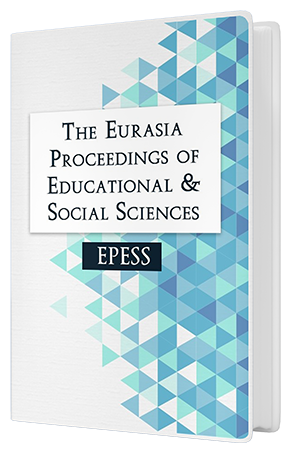MIDDLE AND SECONDARY SCHOOL STUDENTS’ APPROACHES TO COMPUTER AND INTERNET
Keywords:
Computer usage, internet usage, middle school students, secondary school studentsAbstract
The aim of this qualitative study is to determine middle and secondary school students’ approaches related to computers and internet. To achieve this aim a form consisted of 8 open-ended questions was used. The implementation was carried out to 322 middle school and 161 secondary school students in Trabzon and Giresun cities on 2015-2016 school year. It was tried to determine understandings of students related to computer and internet, their computer program and internet sites preferences, the difficulties they have in computer and internet usage, and their suggestions regarding effective usage of computer and internet. The qualitative data obtained were analyzed by content analysis and descriptive analysis methods. Data obtained showed that students saw computer mostly as a tool for amusement and a tool which helped to lessons and they saw internet as the fastest way to reach information and a communication way, they used office programs in computers and preferred communication sites. Also, it was determined that students had some problems in computer and internet usage arising from themselves, others, computers, and internet. Thus, they thought that there had to be in-service training courses related to these problems. Some suggestions were given to students, families, and institutions to make students benefit from computer and internet more effectively.Downloads
Published
Issue
Section
License
Copyright (c) 2016 The Eurasia Proceedings of Educational and Social Sciences

This work is licensed under a Creative Commons Attribution-NonCommercial-ShareAlike 4.0 International License.
The articles may be used for research, teaching, and private study purposes. Any substantial or systematic reproduction, redistribution, reselling, loan, sub-licensing, systematic supply, or distribution in any form to anyone is expressly forbidden. Authors alone are responsible for the contents of their articles. The journal owns the copyright of the articles. The publisher shall not be liable for any loss, actions, claims, proceedings, demand, or costs or damages whatsoever or howsoever caused arising directly or indirectly in connection with or arising out of the use of the research material. All authors are requested to disclose any actual or potential conflict of interest including any financial, personal or other relationships with other people or organizations regarding the submitted work.




